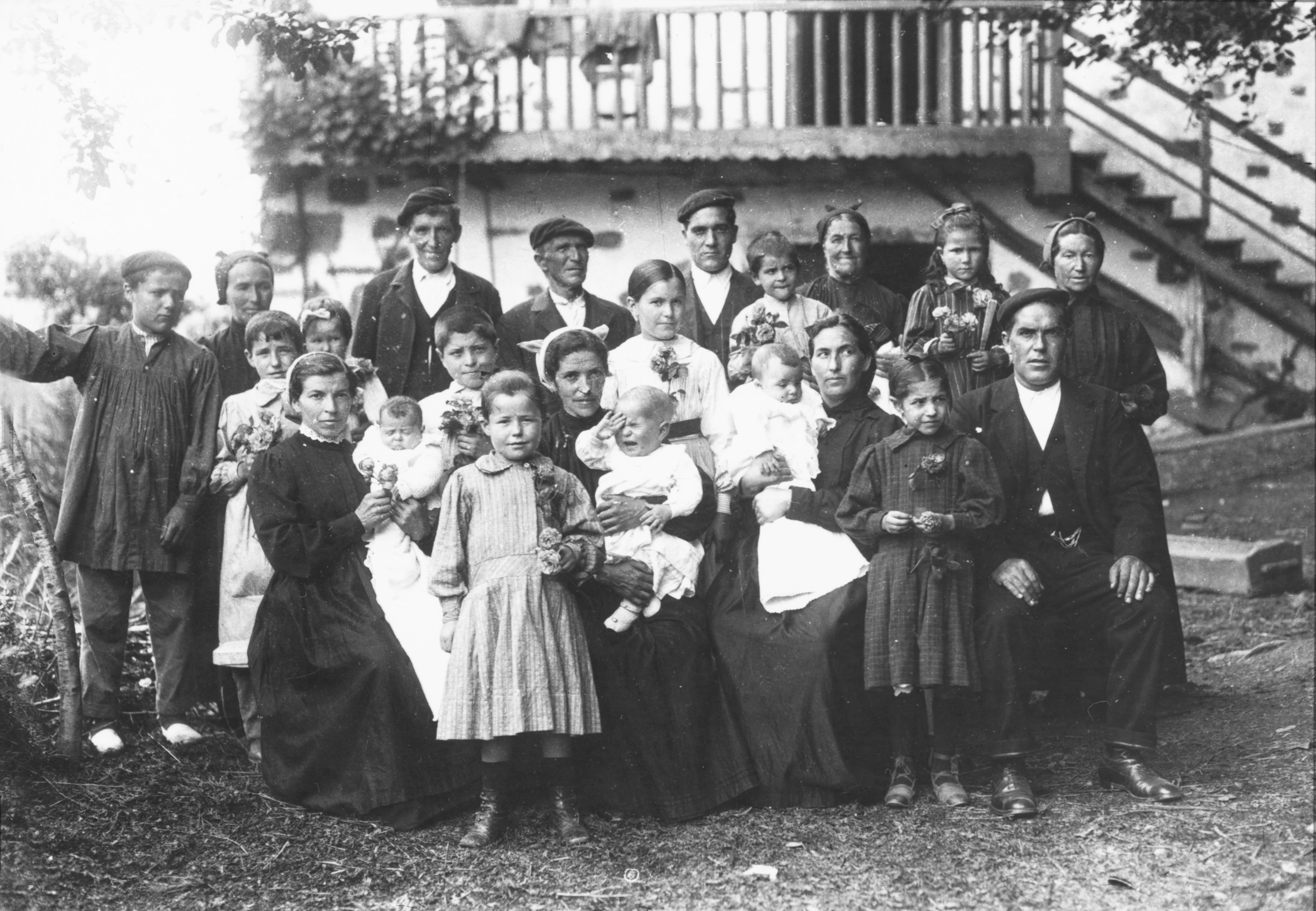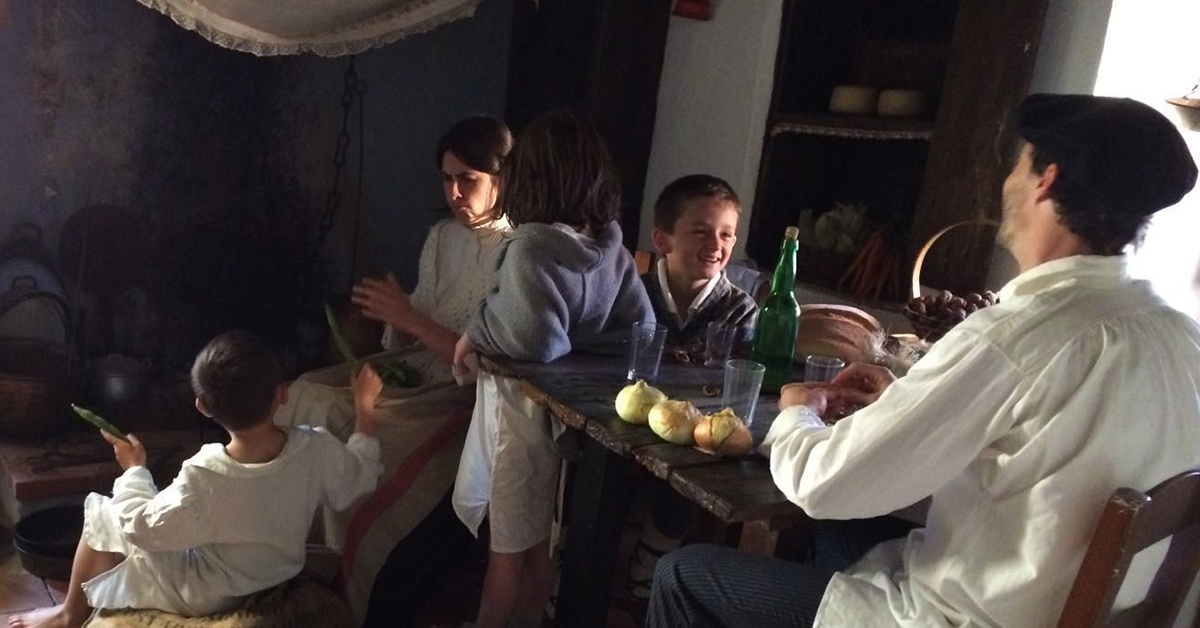Archives
The Christmas Eve Dinner, Gabon afaria, is a ritual considered to be the quintessential family meal. All the people at the meal are usually members of the family and the married children return to the paternal home with their respective families. Nowadays, the married couples usually alternate by celebrating Christmas Eve with one set of parents and New Year’s Eve with the parents of the other spouse. In the past, the offspring who were servants in other houses were given leave by their masters to go to the dinner, along with the gift of a salted cod to take home. Those offspring would also sometimes take a bream, along with the salted cod, to the family meal.
The house has been for centuries a fundamental pillar of society and the very foundation of our way of life. Family and home have been essentially synonymous concepts in our culture: in fact, instead of the term familia ‘family’ we use the expression etxekoak, from etxe ‘house, home’, to signify ‘them who belong to the house, household’, a clear exponent of the circumstance we try to illustrate. Traditionally, the members of a household make up the house, and conversely, they owe their name and identity to their birthplace, as Xalbador’s beautiful verses remind us. A close, solid and indivisible bond, if ever there was one. (more…)

Grazing flock of sheep and lambs. Akaitze Kamiruaga. Labayru Fundazioa Photographic Archive.
The provision of in-kind aid to neighbours was commonly known as lorra in some Basque-speaking communities. It more properly concerned situations where a family in need, for whatever reason, was helped by neighbours, providing them with material support. The terms totoa and totoarena have likewise been found to designate the same concept.
If a shepherd lost his entire flock to disease, he would ask each of his fellow shepherds for a young sheep, which they would immediately present him with. In the surroundings of Oiz Mountain the provision of sheep was known as bildots-lorra, bildots being Basque for ‘yearling sheep’. The custom was also observed in other regions, although not given a particular name. (more…)

An extended family. Artea (Bizkaia), c. 1930. Felipe Manterola Collection. Labayru Fundazioa Fotographic Archive.
The most common word to refer to a household in the Basque-speaking regions of Bizkaia is etxekoak. Although polysemous, that is its main meaning. The term familia makes particular reference to the offspring, and hence the phrase “Familia euki dabe” is to be understood as “They have started a family”. Senideak alludes more specifically to blood relatives and erantsiak to relatives by marriage, near relatives and close friends. (more…)





